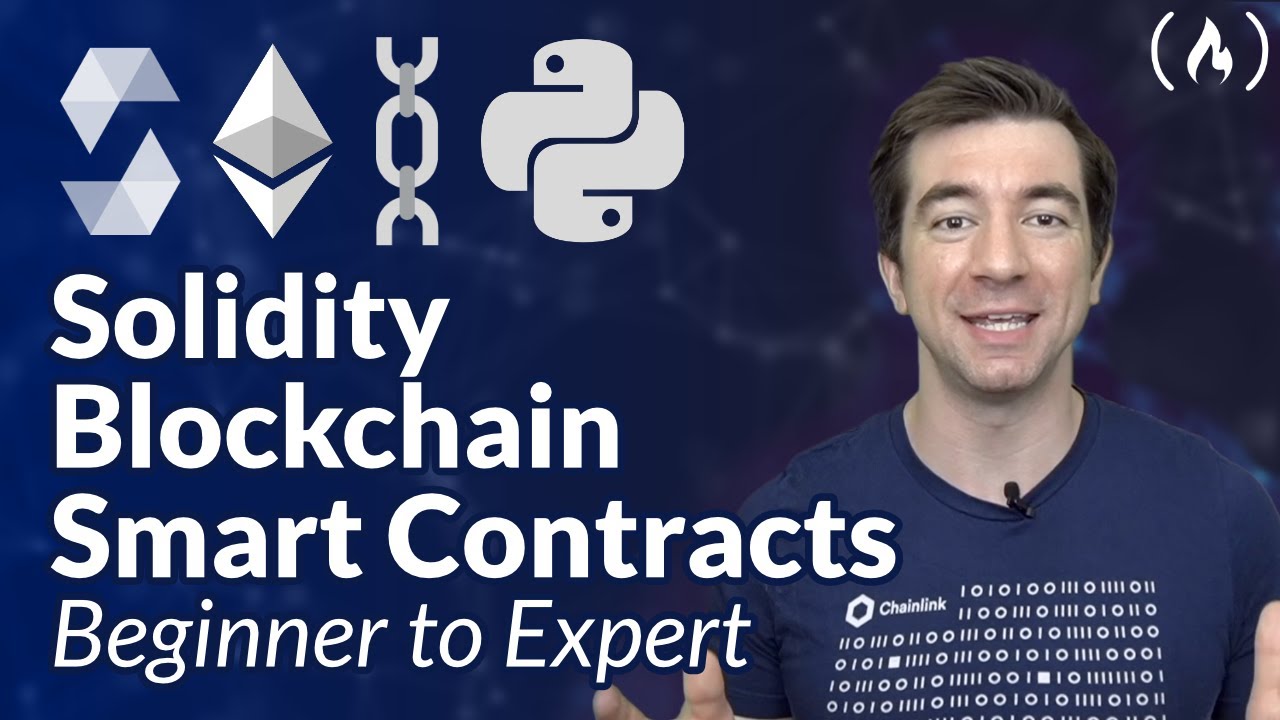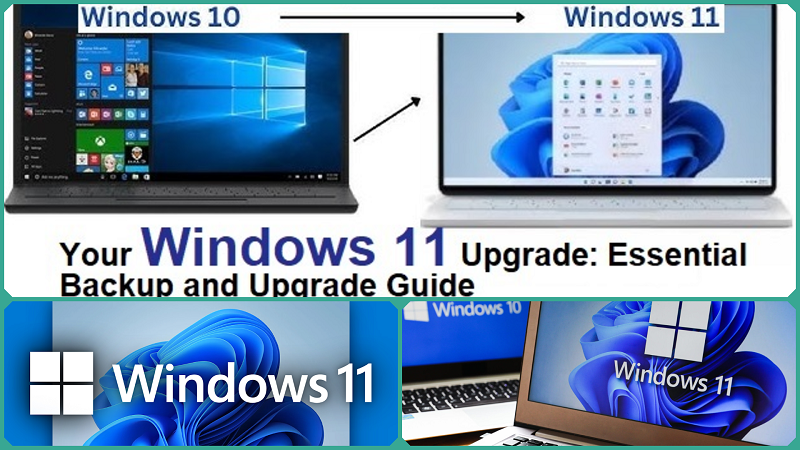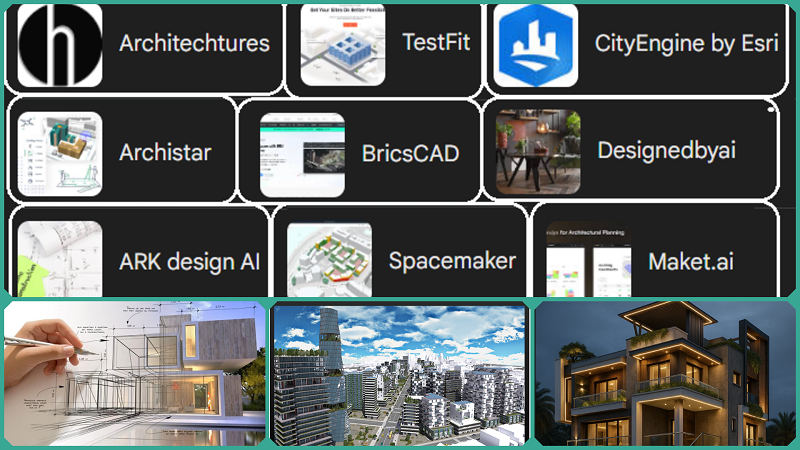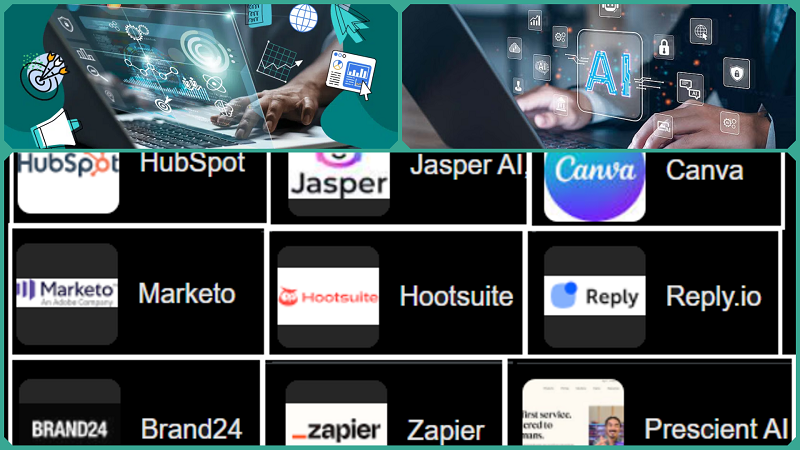Exploring Blockchain Developer Jobs in the Current Market
Blockchain technology has evolved from a niche innovation powering cryptocurrencies to a foundational pillar of modern business, finance, and technology. Today, blockchain developer jobs are among the most sought-after roles in the tech industry, offering lucrative salaries, dynamic career paths, and the chance to shape the future of decentralized systems.
For students just starting, recent graduates entering the workforce, individuals looking to change careers, and even seasoned developers with years of experience, gaining a clear and thorough understanding of the blockchain job landscape is essential. This knowledge helps in making well-informed and strategic career decisions in an increasingly competitive and evolving industry.


This detailed guide offers an extensive and comprehensive overview of the various blockchain developer roles available, the essential skills required to succeed, typical salary expectations, and practical, actionable steps that individuals can follow to enter and thrive in this rapidly growing and booming field.
Key Concepts: What Does a Blockchain Developer Do?
A blockchain developer is a highly specialized software engineer who is dedicated to designing, developing, implementing, and maintaining innovative blockchain-based solutions that utilize decentralized technologies to their fullest potential.
Their primary responsibilities cover a wide and diverse range of tasks aimed at constructing secure, scalable, and highly efficient blockchain systems tailored to meet specific needs. Key duties typically include:
- Designing and deploying smart contracts on popular blockchain platforms such as Ethereum, Solana, or Hyperledger involves much more than just basic coding. It requires writing sophisticated and secure code—often using specialized programming languages like Solidity for Ethereum or Rust for Solana—that enables the automation of complex business logic and financial transactions. These smart contracts operate in a decentralized, trustless environment, ensuring that all processes are executed in a tamper-proof and transparent manner, without the need for intermediaries or centralized control.
- Building and consistently maintaining robust blockchain infrastructure and nodes involves the comprehensive process of setting up and managing complex distributed ledger networks. This includes ensuring that these networks operate in a highly reliable and efficient manner at all times, supporting seamless transactions and data integrity across the system.
- Developing decentralized applications (dApps) that offer highly intuitive and user-friendly interfaces designed specifically to facilitate seamless interaction with various blockchain networks. These applications play a crucial role in bridging the significant gap between the often complex and technical blockchain protocols and the everyday end-users, making blockchain technology more accessible and easier to navigate for a wider audience.
- Ensuring security, scalability, and performance of blockchain systems by implementing advanced cryptographic techniques, thoroughly auditing smart contracts to identify and mitigate potential vulnerabilities, and continuously optimizing consensus algorithms for enhanced efficiency and reliability throughout the network.
- Integrating blockchain solutions with existing business processes and IT systems is a critical step that enables organizations across various industries to fully leverage the transformative benefits that blockchain technology offers. By seamlessly incorporating blockchain into supply chain management, finance operations, healthcare services, and other specialized domains, businesses can enhance transparency, security, and efficiency. This integration allows companies to optimize their workflows, improve data integrity, and create more resilient and trustworthy systems that drive innovation and competitive advantage in their respective markets.
- Consistently staying up-to-date with the latest advancements and emerging trends in blockchain technology, which includes understanding and adopting new protocols, utilizing cutting-edge tools, and adhering to evolving security standards. This ongoing commitment helps to continuously enhance and innovate blockchain applications, ensuring they remain efficient, secure, and forward-thinking in a rapidly changing technological landscape.
Additional responsibilities often include collaborating with cross-functional teams such as product managers, front-end and back-end developers, and stakeholders to align blockchain solutions with business goals. They also document development processes, maintain existing blockchain applications, and troubleshoot issues to ensure smooth operation.
In summary, blockchain developers bring together a diverse range of skills and expertise, including proficiency in multiple programming languages such as Solidity, Rust, Python, and JavaScript. They also have a deep understanding of cryptography, distributed systems, and software engineering principles.
This combination of knowledge allows them to create and maintain the essential infrastructure that supports decentralized digital ecosystems, ensuring these systems are not only secure and transparent but also highly efficient and reliable in their operation.
Specializations within blockchain development
The blockchain landscape is rapidly evolving, and with its expansion across diverse industries, the role of a “blockchain developer” has matured into a spectrum of highly specialized positions. No longer a monolithic field, successful professionals are often those who have honed their skills in specific niches.
This section thoroughly explores the main areas of specialization within the field of blockchain development, providing a detailed overview of the unique responsibilities, essential skills, and in-depth expertise required for each specialization. Additionally, it highlights the exciting and diverse opportunities that each career path offers in today’s rapidly growing and highly dynamic blockchain market, which continues to expand at an impressive pace.
Here is a comprehensive and detailed overview of the various specializations within blockchain development, carefully highlighting the key roles involved and their primary focus areas:
| Role | Key Focus Area |
|---|---|
| Smart Contract Developer | Writing, testing, and auditing smart contracts primarily using languages like Solidity on platforms such as Ethereum. They ensure contracts are secure, efficient, and bug-free to automate business logic on the blockchain. |
| Protocol Engineer | Developing and maintaining the core blockchain protocols, including consensus algorithms (e.g., Proof of Work, Proof of Stake), network communication, and ledger synchronization. This role focuses on the foundational blockchain infrastructure. |
| dApp Developer | Building decentralized applications (dApps) that interact with blockchain networks. They work on front-end and back-end components to create user-friendly interfaces, often using JavaScript frameworks and Web3 libraries. |
| Blockchain Architect | Designing end-to-end blockchain solutions that are scalable, secure, and aligned with business requirements. They make high-level decisions about architecture, technology stacks, and integration strategies. |
| Security Engineer | Specializing in blockchain and smart contract security, they perform vulnerability assessments, penetration testing, and code audits to protect systems from attacks and exploits. |
| Developer Advocate/DevRel | Acting as a bridge between blockchain projects and the developer community, they create educational content, documentation, tutorials, and provide technical support to foster adoption and engagement. |
Each specialization holds a crucial and indispensable role within the broader blockchain ecosystem, contributing unique expertise and perspectives. Professionals working in these various fields frequently collaborate and combine their skills across different areas, fostering teamwork that is essential for developing robust, secure, and innovative decentralized solutions that push the boundaries of what blockchain technology can achieve.
Essential Skills for Blockchain Developer Jobs
To truly excel and stand out in the competitive field of blockchain developer jobs, candidates need to skillfully combine a solid foundation in programming expertise with an in-depth and comprehensive understanding of blockchain technology.
Below is a detailed and thorough breakdown of the essential skills that are required for success in this rapidly evolving industry:
Programming Languages
- Solidity: The dominant language for writing smart contracts on Ethereum and compatible blockchains. Mastery of Solidity is critical for developing and auditing secure contracts.
- Rust: Preferred for high-performance blockchains like Solana and Polkadot due to its memory safety and speed.
- Python: Widely used for blockchain scripting, prototyping, and backend integration.
- JavaScript/TypeScript: Essential for building Web3 frontends and interacting with blockchain nodes via libraries like Web3.js or Ethers.js.
Proficiency across multiple programming languages is highly valued in the tech industry, as it enables developers to adapt seamlessly to a wide variety of platforms and diverse project requirements. This versatility not only enhances their ability to tackle different challenges but also makes them indispensable assets in dynamic and fast-evolving development environments.
Blockchain Fundamentals
- Distributed Ledger Technology (DLT): Understanding how decentralized ledgers work to ensure transparency and immutability.
- Consensus Mechanisms: Knowledge of Proof of Work (PoW), Proof of Stake (PoS), Delegated PoS, and emerging consensus algorithms.
- Blockchain Architecture: Familiarity with data structures like Merkle trees, directed acyclic graphs (DAGs), and how blocks are organized and linked.
A thorough and solid grasp of these fundamental concepts enables developers to confidently design and implement blockchain solutions that are not only scalable and efficient but also highly secure, ensuring robust performance and reliability in various applications.
Smart Contract Development & Security
- Writing & Testing: Ability to write, deploy, and rigorously test smart contracts using frameworks such as Hardhat, Truffle, and Remix.
- Security Awareness: Understanding common vulnerabilities like reentrancy attacks, integer overflows, and front-running. Implementing best practices to mitigate risks is essential.
- Gas Optimization: Writing efficient code to minimize transaction costs on blockchains like Ethereum.
Security is paramount because any flaws or vulnerabilities found in smart contracts can potentially result in significant and sometimes devastating financial losses for users and stakeholders involved in the system. Ensuring robust security measures is critical to protect assets and maintain trust.
Cryptography
- Public/Private Key Encryption: Managing keys securely for identity and transaction signing.
- Digital Signatures & Hashing: Ensuring data integrity and authentication.
- Cryptographic Protocols: Applying zero-knowledge proofs, elliptic curve cryptography, and other advanced methods.
A comprehensive understanding of cryptography is fundamental to the trustless environment that blockchain technology operates within and plays a crucial role in underpinning the secure processing of transactions across the network.
Experience with Blockchain Platforms & Tools
- Platforms: Hands-on experience with Ethereum, Solana, Binance Smart Chain, Algorand, Hyperledger, and others.
- APIs & SDKs: Using blockchain APIs and software development kits to build and integrate blockchain solutions.
- Development Frameworks: Familiarity with tools like Ganache, Infura, MetaMask, and blockchain explorers.
Gaining practical experience with a wide variety of platforms and tools significantly accelerates both development and deployment cycles, allowing teams to work more efficiently and deliver results faster. This hands-on familiarity helps streamline processes, reduce errors, and improve overall project timelines.
Soft Skills
- Problem-Solving & Critical Thinking: Ability to analyze complex decentralized systems and troubleshoot issues.
- Collaboration: Working effectively in remote, cross-functional teams, often distributed globally.
- Adaptability: Keeping pace with rapidly evolving blockchain technologies, protocols, and industry standards.
Soft skills significantly complement technical expertise by enabling developers to innovate creatively and contribute more meaningfully within fast-paced, ever-changing dynamic environments where collaboration and adaptability are crucial for success.
Summary of the Essential Skills for Blockchain Developer Jobs
| Skill Category | Key Competencies & Tools |
|---|---|
| Programming Languages | Solidity, Rust, Python, JavaScript/TypeScript |
| Blockchain Fundamentals | DLT, consensus algorithms, blockchain data structures |
| Smart Contract Development | Hardhat, Truffle, Remix, and security best practices |
| Cryptography | Key management, digital signatures, and hashing algorithms |
| Platforms & Tools | Ethereum, Solana, BSC, Algorand, APIs, SDKs, MetaMask |
| Soft Skill | Problem-solving, collaboration, adaptability |
By thoroughly mastering these essential skills, blockchain developers effectively position themselves to successfully meet the challenges of the highly competitive and rapidly growing job market. This expertise enables them to build secure, scalable, and innovative decentralized applications and systems that stand out in the industry and push the boundaries of what blockchain technology can achieve.
Current Trends and Developments in Blockchain Developer Jobs
The blockchain job market is currently undergoing an unprecedented phase of rapid and expansive growth. Leading global corporations such as IBM, Microsoft, and Amazon are actively seeking to hire skilled blockchain developers, which demonstrates the technology’s shift from a niche innovation to widespread mainstream adoption.
This significant surge in demand is fueled by the fast-paced advancements in various sectors, including decentralized finance (DeFi), supply chain management, healthcare, gaming, and the booming market for non-fungible tokens (NFTs). These industries increasingly depend on blockchain technology to ensure greater transparency, enhanced security, and improved operational efficiency across their platforms and services.
Key Drivers of Demand
- DeFi Expansion: Decentralized finance (DeFi) platforms are increasingly disrupting and transforming traditional financial systems, with the total value locked (TVL) in DeFi protocols surpassing an impressive $100 billion mark in 2024 and showing strong potential for continued growth well into 2025. This rapid expansion has generated a significant and growing demand for highly skilled developers who possess expertise in writing secure smart contracts, advanced protocol engineering, and effective risk management strategies to support and enhance these innovative financial ecosystems.
- Enterprise Adoption: Beyond just cryptocurrencies, various sectors such as supply chain management, healthcare, and logistics are increasingly leveraging blockchain technology to enhance traceability, ensure compliance, and maintain data integrity across their operations. These industries recognize the value of blockchain in creating transparent and tamper-proof records, which help to improve overall efficiency and trustworthiness. As a result, companies are actively seeking skilled developers who possess the expertise to seamlessly integrate blockchain solutions with their existing legacy systems while also ensuring adherence to evolving regulatory requirements and standards.
- NFTs and Gaming: The rapidly growing NFT and gaming sectors demand skilled developers who can optimize performance, enhance user experience, and ensure the scalability of platforms and applications. This increasing need for technical expertise is driving a significant expansion in job opportunities within these innovative industries, opening doors for professionals to contribute to cutting-edge projects and technologies.
Key Trends Shaping Blockchain Developer Jobs
Remote Work Becomes the Norm
Blockchain development is inherently decentralized, making remote work standard across the industry. Companies benefit from access to a global talent pool, while developers enjoy flexibility and the ability to work from anywhere. Asynchronous collaboration and distributed teams are now the default, supported by advanced remote collaboration tools.
Rise of Cross-Disciplinary Roles
Employers increasingly value developers with expertise that spans blockchain and adjacent domains such as finance, compliance, or product management. This shift reflects blockchain’s integration into broader business functions and the need for solutions that address regulatory, operational, and user experience challenges.
Examples of cross-disciplinary demand:
- Developers with finance backgrounds for DeFi projects
- Blockchain engineers with compliance expertise for regulated industries
- Product-focused developers who can bridge technical and business requirements
Specialization and Niche Skills
The era of the “generalist” blockchain developer is gradually coming to an end. Nowadays, companies place a much higher value on specialists who possess deep expertise in specific areas such as:
- Smart contract security: Preventing exploits and safeguarding assets
- DeFi protocol development: Building and maintaining complex financial primitives
- Cross-chain integration: Enabling interoperability between blockchains
- Layer 2 scaling solutions: Addressing scalability and cost issues on platforms like Ethereum
Emerging Technologies and New Frontiers
Blockchain technology is increasingly converging with a variety of other cutting-edge and innovative technologies, fundamentally reshaping and transforming the developer landscape in profound ways:
- AI + Blockchain: Projects are integrating artificial intelligence for on-chain analytics, automated trading, and fraud detection. AI-driven DeFi bots and predictive analytics are becoming more prevalent.
- Real-World Asset Tokenization: Tokenizing traditional assets (real estate, bonds, etc.) for on-chain trading and liquidity is accelerating, requiring developers to understand both blockchain and traditional finance.
- Green Blockchain Solutions: There is a growing focus on sustainability, with new protocols designed for energy efficiency and reduced carbon footprints.
- Modular and Interoperable Architectures: Developers are building modular blockchains and cross-chain bridges, enabling seamless communication between different networks and supporting scalable, composable ecosystems.
Salary and Job Market Data
- Salaries continue to rise due to a persistent talent shortage. Entry-level blockchain developers can expect to earn around $121,000, while experienced specialists and protocol engineers can command $187,500 or more.
- Job openings are growing at over 20% annually, with some estimates suggesting there are 14 open roles for every qualified blockchain developer.
- Remote roles and token-based compensation are increasingly common, especially in decentralized organizations and DAOs.
Summary of the Current Trends and Developments in Blockchain Developer Jobs
| Specialization | Key Skills Required | Typical Industries/Sectors |
|---|---|---|
| Smart Contract Developer | Solidity, Vyper, and security auditing | DeFi, NFTs, Gaming |
| Protocol Engineer | Rust, Go, consensus algorithms, cryptography | Core blockchain, Layer 1/2 |
| Cross-Chain Integration | Interoperability protocols, bridge development | DeFi, Enterprise, Supply Chain |
| Blockchain Security Engineer | Penetration testing, audits, bug bounties | All sectors |
| AI + Blockchain Developer | Machine learning, smart contracts, and data analytics | DeFi, Analytics, Gaming |
| Product/Compliance Specialist | Regulatory tech, product management, and documentation | Enterprise, Regulated Industries |
Looking Ahead: What This Means for Developers
- Continuous Learning: The rapid and ongoing evolution of blockchain technology means that developers must continuously stay up to date with the latest protocols, emerging tools, and advanced security practices in order to remain competitive and effective in this fast-paced industry. Staying informed about new developments is essential for maintaining expertise and delivering innovative solutions.
- Portfolio and Community Engagement: Developing and maintaining a strong, diverse portfolio—such as contributing to open-source projects, participating actively in hackathons, and showcasing your work—is crucial for demonstrating your skills and expertise. Additionally, building meaningful connections and networking within blockchain communities, including platforms like GitHub, Discord servers, and Decentralized Autonomous Organizations (DAOs), plays a vital role in gaining visibility and increasing your chances of securing top roles in the industry.
- Flexible Work Models: Developers have the opportunity to select from a variety of work arrangements, including full-time positions, freelance projects, or roles within decentralized autonomous organizations (DAOs). These options often involve collaborating with diverse, global teams spread across different time zones. Additionally, compensation structures are designed to be highly flexible, accommodating various payment methods and schedules to suit individual preferences and circumstances.
Key Takeaways
- The blockchain job market is booming, with high demand across multiple industries and global employers.
- Remote work and cross-disciplinary expertise are now standard expectations.
- Specialization in security, DeFi, AI integration, and cross-chain solutions offers the best career prospects.
- Continuous upskilling and engagement with the blockchain community are vital for long-term success.
The blockchain developer landscape is incredibly dynamic, continuously evolving, and highly rewarding for those who are passionate about technology. It offers abundant opportunities and is open to individuals who demonstrate adaptability, a strong sense of curiosity, and a willingness to specialize deeply in the cutting-edge technologies that are shaping the future of digital innovation and decentralized systems.
Salary Insights and Job Market Data
Salaries for blockchain developer jobs have increased significantly over recent years due to a continuous and growing talent shortage, as well as the highly specialized skills and expertise that these roles require. This trend reflects the increasing demand for blockchain technology across various industries.
Below is a comprehensive and detailed breakdown of salary insights, along with current job market data to provide a clear understanding of this evolving field:
| Experience Level | Typical Salary Range (USD, 2025) | Notes |
|---|---|---|
| Entry-Level | $99,000 – $121,000 | For developers with foundational blockchain and programming skills, often supporting projects and learning platform-specific development. |
| Mid-Level (3-5 years) | $120,000 – $165,000 | Developers proficient in multiple blockchain platforms and languages, capable of handling complex tasks. |
| Senior/Architect | $165,000 – $262,000+ | Leadership roles involving architecture design, team management, and niche blockchain expertise. |
Additional Insights:
- Average Salaries:
- The average U.S. blockchain developer salary is approximately $146,250 to $150,000 annually, reflecting the premium placed on blockchain skills.
- Entry-level salaries start near $121,000, while senior developers can earn up to $187,000 or more, depending on expertise and location.
- Top Earners and Specialized Roles:
- Senior blockchain architects, protocol engineers, and security specialists can command salaries exceeding $200,000, especially in top crypto firms or remote roles.
- Some reports show salaries reaching as high as $262,000+ for highly specialized positions.
- Hourly Rates:
- The average hourly rate for blockchain developers is around $70 to $78 per hour, with rates ranging from $41 to $136 depending on experience and project complexity.
- Geographic Variations:
- Salaries vary by location, with tech hubs like Brooklyn, NY ($194,630), Dallas, TX ($191,363), and Sunnyvale, CA ($181,775) offering some of the highest pay.
- In emerging markets like Nigeria, blockchain developers earn between 1.8 million and 5.1 million NGN annually (~$4,000 to $11,000), reflecting local economic conditions but showing growth potential.
- Factors Influencing Salary:
- Technical expertise in specific blockchain platforms (Ethereum, Solana, Binance Smart Chain)
- Smart contract development and security experience
- Programming language proficiency (Solidity, Rust, Python)
- Location and cost of living
- Industry sector (fintech and DeFi tend to pay more)
- Complexity and scope of projects
The blockchain developer job market is extremely competitive and offers salaries that are significantly higher than those found in many traditional software development positions. This is primarily due to the unique combination of specialized technical skills required, the rapidly increasing adoption of blockchain technology by enterprises worldwide, and the limited number of qualified professionals available in this field.
As a result, compensation for blockchain developers continues to rise steadily. Developers who possess robust portfolios showcasing their work, expertise across multiple platforms, and a deep understanding of security principles are especially well-positioned to secure the highest salaries and most attractive job opportunities in this growing industry.
How to Become a Blockchain Developer: Roadmap for 2025
Whether you are a student just starting, someone looking to change careers, or an experienced developer aiming to expand your skill set, launching a successful and fulfilling career as a blockchain developer in 2025 requires a well-organized and structured approach.
This approach should thoughtfully combine a solid foundation of core knowledge, hands-on practical experience, and a commitment to continuous learning and adaptation in this rapidly evolving field. Below, you will find a detailed and comprehensive step-by-step roadmap designed to effectively guide you through every stage of this exciting journey.
Build a Strong Foundation in Computer Science
- Master core concepts such as data structures, algorithms, and software design principles. These fundamentals are critical for understanding how blockchain systems operate and for writing efficient code.
- Gain proficiency in general programming concepts that apply across languages and platforms.
Learn Programming Languages
- Start with versatile languages like Python or JavaScript, which are widely used for scripting and front-end development.
- Progress to blockchain-specific languages such as:
- Solidity for Ethereum smart contracts.
- Rust for high-performance blockchains like Solana and Polkadot.
- Go for blockchain infrastructure projects.
- Familiarize yourself with development frameworks and tools like Hardhat, Truffle, and Remix for smart contract development and testing.
Understand Blockchain Fundamentals
- Study distributed ledger technology (DLT) and how decentralized networks operate.
- Learn about consensus algorithms such as Proof of Work (PoW), Proof of Stake (PoS), and newer mechanisms.
- Explore blockchain architecture, including data structures like Merkle trees and cryptographic hashing.
- Understand how transactions are validated and blocks are created and linked.
Gain Practical Experience
- Write and deploy smart contracts on Ethereum or other blockchain Testnets to gain hands-on experience.
- Build simple decentralized applications (dApps) combining smart contracts with user interfaces.
- Contribute to open-source blockchain projects on platforms like GitHub to collaborate with the community and showcase your skills.
- Participate in hackathons and coding challenges focused on blockchain development.
Explore Different Blockchain Platforms
- Experiment with multiple blockchain ecosystems such as:
- Ethereum (most popular for smart contracts and dApps)
- Solana (high throughput and low latency)
- Algorand (scalable and secure with Pure Proof-of-Stake)
- Binance Smart Chain, Polygon, and others.
- Understand each platform’s unique features, consensus mechanisms, and developer tools.
Develop Security Awareness
- Learn about common vulnerabilities in smart contracts like reentrancy, integer overflow, and front-running.
- Study best practices for secure smart contract development.
- Use auditing tools and frameworks to test and verify your code.
- Stay informed about the latest security threats and mitigation techniques in the blockchain space.
Stay Updated and Network
- Join blockchain communities on Discord, Reddit, and Twitter to stay connected with industry trends and experts.
- Attend webinars, workshops, and conferences focused on blockchain technology.
- Follow influential developers and organizations to keep abreast of new tools, protocols, and best practices.
Showcase Your Work
- Build a portfolio of blockchain projects on GitHub demonstrating your development skills.
- Write technical blogs or create video tutorials to share your knowledge and establish your presence in the blockchain community.
- Engage in public speaking or webinars to enhance your professional profile.
Consider Certifications
- While not mandatory, certifications can validate your skills and improve job prospects.
- Popular options include:
- Certified Blockchain Developer programs from Blockchain Council or IBM.
- Courses on platforms like Coursera, Udemy, and 101 Blockchains.
- Specialized certifications in smart contract security, DeFi development, or specific blockchain platforms.
- Certifications signal commitment and proficiency to employers, especially for career changers.
Summary of How to Become a Blockchain Developer
| Step | Action Items |
|---|---|
| Foundation | Master CS fundamentals: data structures, algorithms |
| Programming | Learn Python, JavaScript, Solidity, Rust, Go |
| Blockchain Basics | Study DLT, consensus, and blockchain architecture |
| Practical Experiences | Deploy smart contracts, build dApps, and contribute to open-source |
| Explore Platforms | Experiment with Ethereum, Solana, Algorand, BSC |
| Security Awareness | Learn vulnerabilities, auditing, and secure coding practices |
| Networking | Join communities, attend events, and follow industry leaders |
| Showcase Work | Build a portfolio, blog, and speak publicly |
| Certification | Obtain relevant blockchain certifications |
Becoming a blockchain developer in 2025 is an incredibly exciting and highly rewarding career path to pursue. The field of blockchain technology is rapidly evolving at an unprecedented pace, creating a wealth of abundant opportunities for individuals who combine solid technical expertise with a commitment to continuous learning and active community engagement.
By carefully following this comprehensive roadmap, you can build a strong and reliable foundation, develop a wide range of in-demand skills, and strategically position yourself for long-term success in the ever-expanding and competitive blockchain job market.
Real-World Example: Career Transition to Blockchain
Case Study: Maria’s Journey from Web Developer to Blockchain Developer
Maria was a mid-career web developer who had accumulated over five years of valuable experience working in both front-end and back-end development. In early 2023, deeply intrigued by the rapid and explosive growth of blockchain technology along with its far-reaching and transformative potential across various industries, she made the deliberate decision to pivot her career focus toward the specialized field of blockchain development.
Step 1: Learning Solidity and Blockchain Fundamentals
Maria began her journey by deeply immersing herself in the fundamental concepts of blockchain technology. She dedicated time to studying the intricacies of distributed ledger technology and understanding how data is securely and transparently recorded across multiple nodes.
Additionally, she explored various consensus mechanisms that enable decentralized agreement within blockchain networks, as well as the detailed architecture behind smart contracts and how they function autonomously on the blockchain.
Her primary focus was on Solidity, which is the main programming language used for writing smart contracts on the Ethereum platform. To build her expertise, she enrolled in comprehensive online courses and followed step-by-step tutorials available on popular educational platforms such as Coursera and Udemy, allowing her to gain practical skills and theoretical knowledge simultaneously.
Step 2: Hands-On Experience with DeFi Projects
To gain valuable practical experience in the field, Maria actively contributed to several well-known open-source DeFi projects hosted on GitHub. This hands-on involvement provided her with the opportunity to:
- Write and audit smart contracts
- Collaborate with experienced blockchain developers
- Understand real-world challenges such as security vulnerabilities and gas optimization
Her contributions were highly appreciated and well-received by her peers and supervisors alike, which encouraged her to continue expanding her skills. Over time, she diligently built an impressive portfolio that showcased her steadily growing expertise and the depth of knowledge she had acquired through her consistent efforts.
Step 3: Community Engagement and Networking
Maria actively participated in various blockchain developer communities on platforms like Discord and Twitter, regularly engaging in discussions and sharing knowledge. She consistently attended virtual hackathons, which allowed her to collaborate with other developers and sharpen her skills.
Additionally, she joined local blockchain meetups in her area, where she could meet professionals face-to-face and exchange ideas. This extensive networking not only helped her stay informed about the latest industry trends but also enabled her to build meaningful connections with potential employers and collaborators.
Step 4: Securing a Blockchain Developer Role
Within just 18 months, Maria successfully secured a highly sought-after smart contract developer position at a leading crypto startup. This exciting role required her to design, develop, and deploy secure and efficient smart contracts specifically tailored for various DeFi protocols.
Her new position came with a significant salary increase, nearly doubling what she earned in her previous web development job, which reflected the skyrocketing demand and the highly specialized skill set needed in the rapidly evolving field of blockchain development.
Key Factors Behind Maria’s Success
- Building a strong, demonstrable portfolio of blockchain projects
- Continuous learning and adapting to new blockchain tools and security practices
- Active networking and community participation, which opened doors to job opportunities
- Leveraging transferable skills from web development, such as JavaScript and problem-solving
Takeaway for Aspiring Blockchain Developers
Maria’s journey clearly illustrates that with a strong sense of dedication, strategic and focused learning, as well as active community engagement, mid-career professionals are fully capable of successfully making the transition into the dynamic and rapidly evolving field of blockchain development.
Gaining practical, hands-on experience and creating a visible, well-curated portfolio are essential steps that significantly increase the chances of breaking into this highly competitive and incredibly rewarding industry.
This case study is based on real-world career transitions that have been carefully observed and documented within the rapidly evolving blockchain industry. It demonstrates practical and actionable pathways for professionals from diverse backgrounds who are aiming to enter the field of blockchain development and establish themselves successfully.
In-Demand Blockchain Developer Roles in 2025
Here is a comprehensive overview of the most in-demand blockchain developer roles expected in 2025, including detailed descriptions of each position along with the typical skills and qualifications required to excel in these roles:
| Role | Description | Typical Skills Required |
|---|---|---|
| Blockchain Architect | Designs scalable, secure blockchain systems and oversees architecture decisions. | Blockchain architecture, security best practices, multi-platform expertise |
| Smart Contract Developer | Writes, tests, and audits smart contracts for decentralized applications (dApps) and decentralized finance (DeFi) protocols. | Solidity, smart contract security, testing frameworks (Hardhat, Truffle, Remix) |
| Protocol Engineer | Develops core blockchain protocols, including consensus mechanisms and network layers. | Rust, Go, cryptography, and distributed systems design |
| dApp Developer | Builds user-facing decentralized applications that interact with blockchain networks. | JavaScript, Web3.js, React, UI/UX design |
| Blockchain Security Engineer | Audits blockchain code and smart contracts to ensure system security and prevent vulnerabilities. | Security auditing, cryptography, and penetration testing |
| Developer Advocate/DevRel | Educates and supports developer communities by creating documentation, tutorials, and engaging content. | Communication, technical writing, coding, and community engagement |
| Token Economist | Designs tokenomics models for blockchain ecosystems to incentivize user behavior and economic sustainability. | Economics, game theory, and smart contract knowledge |
| Data Analyst/Scientist | Analyzes blockchain data for insights, trends, and decision-making support. | Data analytics, visualization tools, and blockchain data format |
Market Context and Salary Insights
- Salary ranges vary by experience and specialization, with average blockchain developer salaries around $150,000 annually in the U.S. as of 2025, according to Algorand and Web3.career reports.
- Entry-level developers typically earn between $99,000 and $121,000, while senior architects and specialized engineers can command salaries exceeding $187,000 to $262,000.
- Roles requiring deep expertise in smart contract security, protocol development, or cross-chain interoperability are especially well-compensated.
- The demand for blockchain developers continues to rise sharply, with job openings growing in DeFi, NFTs, enterprise blockchain, and emerging Web3 sectors.
The blockchain ecosystem in 2025 presents a wide array of diverse and exciting career paths that demand a unique combination of skills, including advanced programming, robust security knowledge, intricate economic modeling, and active community engagement abilities.
Professionals who focus on developing expertise in one or more of these specialized roles, while consistently updating and expanding their knowledge base to keep pace with rapid technological advancements, will be exceptionally well-positioned to seize opportunities and thrive in this dynamic and rapidly growing job market.
FAQs
What qualifications do I need for blockchain developer jobs?
A bachelor’s degree in computer science or a related field is common but not mandatory. Many successful blockchain developers are self-taught or come from other software backgrounds. What matters most is mastery of programming languages, a solid understanding of blockchain fundamentals, and hands-on experience building projects or contributing to open-source blockchain initiatives.
Can I become a blockchain developer without prior experience?
Many developers transition from web development, backend engineering, or finance roles by learning blockchain-specific skills such as Solidity or Rust. Building a portfolio of projects, contributing to open-source blockchain codebases, and active participation in developer communities are effective ways to break into the field.
What are the most in-demand skills for blockchain developers in 2025?
Top skills include a diverse range of abilities and expertise that are essential for success across various fields and industries. These skills encompass both technical proficiencies and soft skills, enabling individuals to adapt, excel, and contribute effectively in dynamic work environments.
- Solidity for Ethereum smart contracts
- Rust for high-performance blockchains like Solana
- Smart contract security and auditing
- DeFi protocol development
- Cross-chain integration
- Cryptography fundamentals
- Proficiency with blockchain platforms and development frameworks.
How much can I earn as a blockchain developer?
Salaries can vary significantly depending on factors such as the level of experience an individual has, the geographic location where they work, and their specific area of specialization within the field:
- Entry-level: Around $99,000 to $121,000 annually
- Mid-level (3-5 years): Approximately $120,000 to $165,000
- Senior/Architect: Can exceed $187,000 to $262,000+
- Remote roles and positions at top crypto firms often pay at the higher end of this range.
Where can I find blockchain developer jobs?
Some of the most popular and widely used job boards include the following platforms:
- CryptoJobsList
- Web3.career
- Company career pages of major blockchain firms (e.g., ConsenSys, Chainlink, Coinbase)
- Networking in blockchain communities on Discord, Twitter, and GitHub also uncovers many opportunities.
Blockchain developer roles require a diverse combination of programming expertise, a deep understanding of various blockchain platforms, and heightened security awareness to effectively build and maintain decentralized applications.
Although formal qualifications and academic credentials can be advantageous, hands-on practical experience, active participation in blockchain communities, and contributions to open-source projects are equally important for success in this field.
Salaries in this sector are notably competitive, often reflecting the rapidly growing market demand and the highly specialized set of skills that blockchain developers possess, making these roles both challenging and rewarding.
In Conclusion
Blockchain developer jobs in 2025 present outstanding and exciting opportunities for professionals who possess the right combination of advanced technical skills, genuine curiosity, and strong adaptability. Whether you are just beginning your career journey or looking to take the next significant step forward, the demand for skilled blockchain talent is rapidly increasing.
This growth is driven by highly competitive salaries, attractive, flexible remote work options, and the unique chance to contribute meaningfully to innovative and cutting-edge decentralized technologies shaping the future.
Key Takeaways:
- Strong Demand: Blockchain expertise is highly sought after across diverse industries, including finance, healthcare, supply chain, gaming, and more. This demand is driving rapid job growth and opportunities worldwide.
- Lucrative Salaries: Compensation for blockchain developers is well above average for tech roles. Entry-level salaries start around $99,000 to $121,000 annually, mid-level professionals earn between $140,000 and $165,000, and senior or architect roles can command $187,000 to $262,000 or more, depending on specialization and location.
- Diverse Career Paths: The blockchain ecosystem offers varied roles such as smart contract developer, protocol engineer, blockchain architect, security specialist, and developer advocate, allowing professionals to align their careers with their interests and strengths.
- Continuous Learning: Given the rapid evolution of blockchain technology, staying updated on new protocols, security best practices, and emerging trends is essential for sustained success.
- Accessible Entry: With dedication, practical experience, and the right resources—such as online courses, certifications, and community engagement—anyone can transition into blockchain development, regardless of prior background.
If you’re ready to embark on this exciting and rapidly evolving journey, begin by exploring a variety of reputable online courses that offer in-depth knowledge and practical skills. Additionally, consider joining vibrant blockchain developer communities to connect with like-minded individuals, share insights, and stay updated on the latest trends.
Contributing to open-source projects can provide invaluable hands-on experience and demonstrate your commitment to the field. Alongside these efforts, focus on building a strong, diverse portfolio that showcases your expertise and projects. The blockchain revolution is unfolding right now at an unprecedented pace—will you seize the opportunity and be part of shaping the future of this groundbreaking technology?
This article thoroughly synthesizes the most current industry data, incorporates expert insights from leading professionals, and draws on real-world examples to offer a comprehensive, reliable, and actionable guide for anyone interested in pursuing blockchain developer jobs in the year 2025. It aims to equip readers with the essential knowledge and practical advice needed to successfully navigate the evolving landscape of blockchain careers.
Discover more from BizTechNomy
Subscribe to get the latest posts sent to your email.






